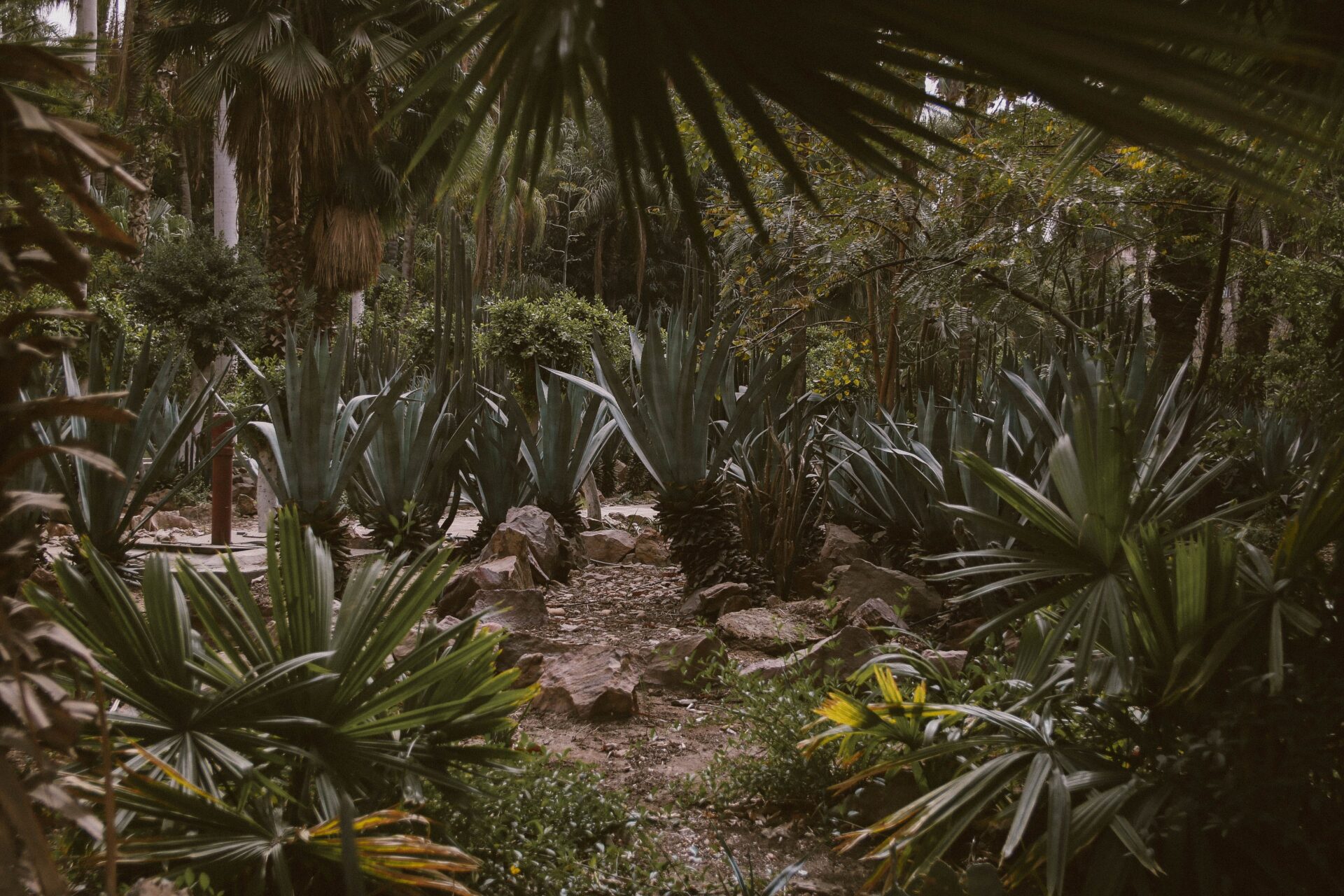Strawberry plants need a regular water supply to thrive and produce a healthy crop. But how much water is enough? Should you water your strawberry plants every day? This article will provide an overview of how often you should water your strawberry plants, as well as tips on how to ensure they’re getting the right amount of water.Water your strawberry plants once per week, making sure the soil is moist but not soggy. Water at the base of the plant, taking care not to wet the leaves. When temperatures are high, you may need to water more often. If the weather is especially dry, you may need to water twice a week.
Advantages of Daily Watering
Daily watering provides plants with a constant, steady supply of water and nutrients, which promotes healthier growth and better blooms. It is also easier to control the frequency and amount of water that plants receive with daily watering, making it easier to avoid both over-watering or under-watering. Furthermore, daily watering can help reduce stress on the plant during periods of extreme heat or cold, as it keeps the soil temperature more consistent.
Disadvantages of Daily Watering
Daily watering can be time consuming for those with busy schedules, as it requires more frequent attention than infrequent watering. Additionally, due to the constant wetness and dampness in the soil caused by daily watering, plants may be more susceptible to fungal diseases such as root rot or mildew. Lastly, daily waterings can increase the possibility of nutrient runoff if too much fertilizer is used in conjunction with regular waterings.
Advantages of Infrequent Watering
For those who have busy schedules or want to save time on their gardening tasks, infrequent watering may be preferable. Additionally, because plants receive larger amounts of water at once when watered infrequently, they are better able to absorb all the nutrients they need at one time. This can reduce the need for frequent fertilizer applications since all necessary nutrients can be supplied with each watering session.
Disadvantages of Infrequent Watering
One downside to infrequent watering is that it requires more careful monitoring since it is easy to forget when plants need to be watered again. Also, because plants are exposed to dry soil for long periods between waterings, they become stressed more easily during hot weather conditions and are more prone to wilting or drying out. Furthermore, infrequent waterings may not provide enough moisture for deep-rooted plants which require large amounts of moisture regularly.
Water Quantity
Strawberry plants need about 1 to 2 inches of water each week, depending on the weather. The amount of water needed can be adjusted depending on the temperature, soil type, and other environmental factors. To check if your plants need watering, take a finger and press it into the soil. If it is dry at least an inch deep, it’s time to water. If it feels moist, wait until it dries out before watering again.
Water Frequency
It is best to water your strawberry plants regularly and deeply. Watering every other day is ideal in hot weather or during periods of drought. In cooler weather, twice a week should be sufficient. However, it is important to pay attention to the weather and adjust your watering schedule accordingly.
Water Quality
It’s important to use clean water when watering your strawberry plants. Tap water that is treated with chlorine or other chemicals can be harmful to the plant’s roots. Rainwater or filtered water are preferable for strawberry plants as they will not contain any chemicals that can harm the plants.
Time of Day
The best time of day to water your strawberry plants is in the morning or evening when temperatures are cooler and there is less evaporation from sunlight. This also reduces the risk of diseases like powdery mildew caused by damp conditions at night.
Mulching
Mulching around your strawberry plants helps retain moisture in the soil and reduce weeds. Organic mulches such as straw or wood chips are ideal for this purpose as they will help keep the soil cool and hold moisture in better than inorganic mulches such as plastic sheeting or gravel.
Watering Your Strawberry Plants
Watering your strawberry plants is an important part of maintaining a healthy garden. Proper watering techniques can help ensure that your plants are receiving the right amount of moisture and nutrients to stay healthy. Here are some helpful tips for watering your strawberry plants:
First, it’s important to water your plants deeply and evenly. This helps ensure that the entire root system receives adequate moisture. When possible, try to water in the morning so that leaves have time to dry off before nightfall. This will help prevent fungal diseases from developing due to wet leaves overnight.
Second, make sure you’re not over-watering your plants. Too much water can cause root rot and other problems, so it’s important to watch out for signs of over-watering such as wilting leaves or yellowing foliage.
Third, use mulch around the base of the plant to help maintain soil moisture levels and suppress weeds. Mulch also helps protect strawberry flowers from being damaged by heavy rain or wind.
Finally, consider using a drip irrigation system if possible. This type of system helps ensure that water is delivered slowly and evenly to the plant’s roots without wasting excess water or flooding the area around the plant.
By following these tips, you can make sure your strawberry plants get the proper amount of water they need for optimal growth and health.
Benefits of Watering Your Strawberry Plants Every Day
Water is essential for the proper growth and development of strawberry plants. It helps to keep the soil moist and supplies essential nutrients to the plant. Regular watering of strawberry plants is important because it promotes healthy root systems, encourages vigorous growth, and prevents disease. Here are some benefits of watering your strawberry plants every day:
Stronger Roots: Watering your strawberry plants regularly helps to strengthen the roots. The water provides essential nutrients that help build strong roots, enabling them to anchor the plant in place and absorb more water and nutrients from the soil. Stronger roots also help protect the plant from damage caused by wind and other environmental factors.
Healthy Fruits: Regular watering helps to provide the necessary moisture for producing healthy fruits. Without sufficient moisture, the fruits may be small, tasteless, or even misshapen. Watering your strawberry plants every day ensures that they have enough moisture to produce large, juicy, and delicious fruits.
Prevents Diseases: Watering your strawberry plants regularly helps prevent diseases caused by fungal spores that thrive in wet conditions. By keeping the soil moist but not overly saturated with water, you can help prevent common diseases such as gray mold or botrytis blight from attacking your plants.
Encourages Growth: Regular watering encourages vigorous growth in strawberries. Without enough water, the plant’s leaves will begin to wilt and new flowers won’t bloom as they should. By providing enough water every day, you can ensure that your strawberries continue to grow vigorously throughout their growing season.
Watering your strawberry plants every day is important for their health and development. The benefits of regular watering include stronger roots, healthier fruits, prevention of disease, and improved growth. So make sure you give your strawberries plenty of love with regular watering!

What to Look Out for When You Water Your Strawberry Plants Every Day
Watering your strawberry plants every day is an important part of growing them. It is essential to keep the soil moist and provide enough water for the plants to thrive. However, there are a few things that you should look out for when watering your strawberry plants every day.
Firstly, make sure that you are not over-watering your plants. If you water them too much, it can cause the roots to rot and eventually kill the plant. Instead, water your plants just enough so that they have enough moisture without being overly saturated. Additionally, make sure to water your plants evenly throughout the entire area so that each plant gets the same level of hydration.
Next, watch out for signs of disease or pests in your strawberry plants. Pay attention to any discoloration on the leaves or sudden wilting as these can be signs of an infection or pest infestation. If you notice any of these signs, take action immediately before it spreads further into your garden and affects other strawberry plants as well.
Finally, make sure that the water you are using is clean and free from contaminants. Using contaminated water can introduce harmful bacteria or chemicals into your garden which can disrupt the balance of nutrients in the soil and cause issues with plant growth and development. Therefore use filtered or distilled water whenever possible when watering your strawberry plants every day.
Overall, watering your strawberry plants every day is essential for providing them with enough hydration to grow healthily and ensure their long term survival in your garden. However, be sure to pay attention to these few points so that you do not end up over-watering them, introducing pests or diseases into the garden or using contaminated water which could affect their growth and health negatively in the long run.
Yellowing Leaves
One of the most common signs that you may need to stop watering your strawberry plants every day is yellowing leaves. Yellow leaves indicate that the plant is not getting enough water, or it is getting too much water. If you are seeing yellow leaves on your strawberry plants, it’s a good idea to stop watering them every day and instead water them more sparingly.
Wilting Plants
Another sign that you may need to stop watering your strawberry plants every day is wilting plants. Wilting occurs when a plant does not get enough water and its leaves begin to droop. If you notice your strawberry plants wilting, it’s likely they are being overwatered and you should reduce how often they are watered.
Root Rot
Root rot is another sign that you may need to stop watering your strawberry plants every day. Root rot occurs when the roots of a plant become saturated with too much water and can no longer absorb nutrients properly. If you notice root rot on your strawberry plants, reduce how often they are watered in order to prevent further damage.
Mushy Strawberries
Finally, mushy strawberries may be a sign that you need to stop watering your strawberry plants every day. Mushy strawberries indicate that the plant has been over-watered and this can lead to poor fruit production as well as other issues with the plant’s health. If you notice mushy strawberries on your strawberry plants, reduce how often they are watered in order to help them recover.
How Much Water Does a Strawberry Plant Need?
Strawberry plants require a significant amount of water to stay healthy and produce abundant fruit. To keep your strawberry plants adequately hydrated, you should water them deeply once or twice a week. Depending on the climate and temperature, you should expect to provide approximately one inch of water per week for optimal growth and fruiting. If your area is experiencing an extended period of hot weather, the plants may need additional water during this time.
When watering your strawberry plant, it is important to provide enough water so that it reaches the root system. A good way to ensure that the entire root system is getting enough hydration is by using a slow trickle method when watering. This ensures that the water has plenty of time to soak in and reach all parts of your strawberry plant’s root system.
It is also important not to overwater your strawberry plants as this can lead to root rot and other problems. To prevent this from occurring, check the soil before watering and make sure it feels dry before adding more water. Additionally, if you notice leaves wilting or turning yellow, this could be an indication that you are overwatering the plant and should reduce your watering schedule accordingly.
It is also beneficial to mulch around your strawberry plants as this will help retain moisture in the soil for longer periods of time. This will reduce how often you need to water them and can help protect against weeds as well as extreme heat or cold temperatures. For best results, use organic mulch such as straw or wood chips which can be found at most garden stores or online retailers.
Overall, it is important to provide adequate hydration for your strawberry plants in order for them to thrive and produce abundant fruit throughout the growing season. Be sure to check soil moisture levels before watering and use a slow trickle method when doing so in order for all parts of the root system to receive enough hydration. Additionally, using mulch around the base of the plant can help retain moisture for longer periods of time which can reduce how often you need to provide additional waterings for optimal results!

Conclusion
In conclusion, whether or not you should water your strawberry plants every day depends on the type of soil and climate where you are growing them. If your soil is sandy or your climate is hot and dry, then daily watering may be necessary to keep your strawberry plants healthy. On the other hand, if you have loamy soil and cooler temperatures, then you may be able to get away with watering only once a week. The best way to determine how often to water your strawberry plants is to pay attention to the condition of the soil and monitor how quickly it dries out. By doing this, you can ensure that your strawberry plants receive the right amount of water for optimum growth and health.
Ultimately, it is important to remember that too much water can be just as damaging to your strawberry plants as too little water. Therefore, it is important to avoid overwatering and use caution when deciding how often to water your strawberry plants. With some trial and error, you should be able to find the perfect watering schedule for your garden!



